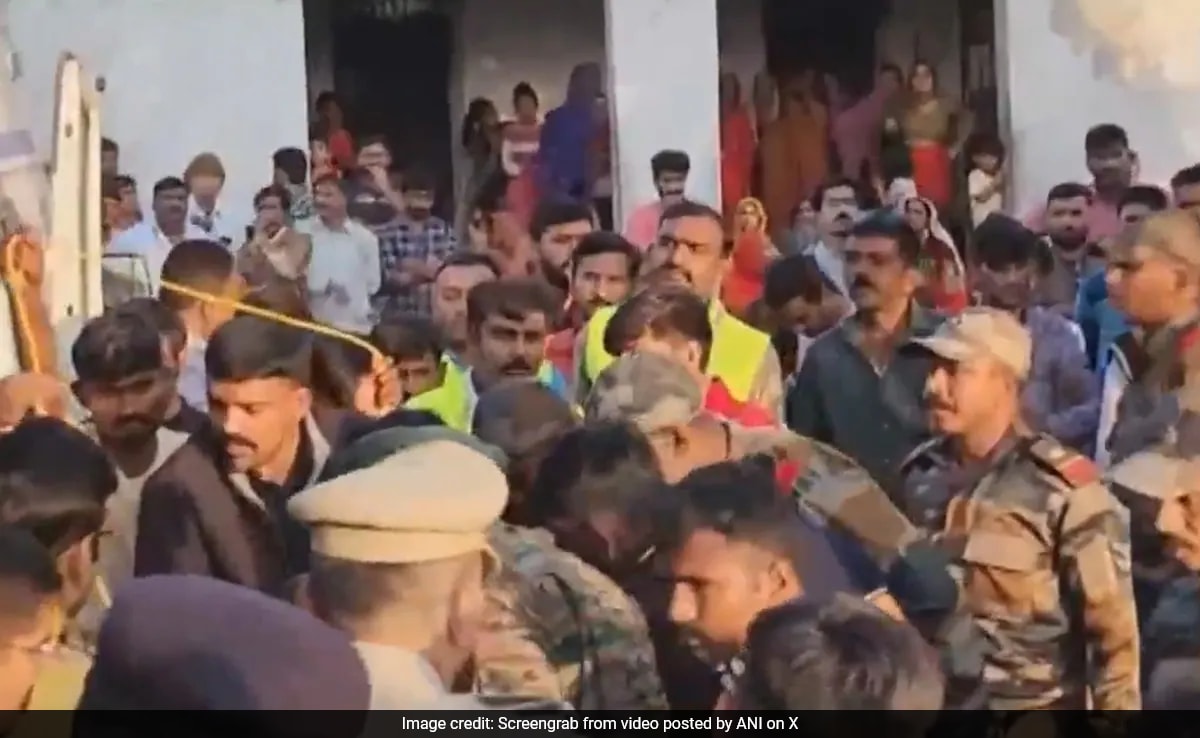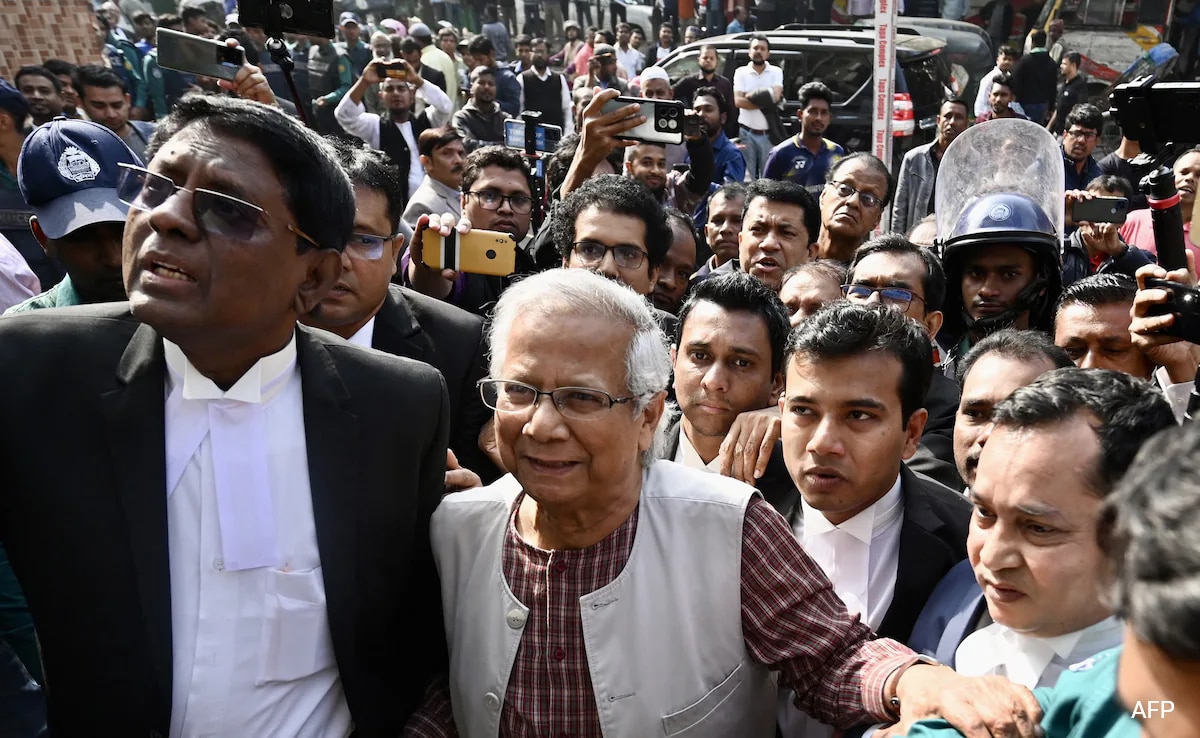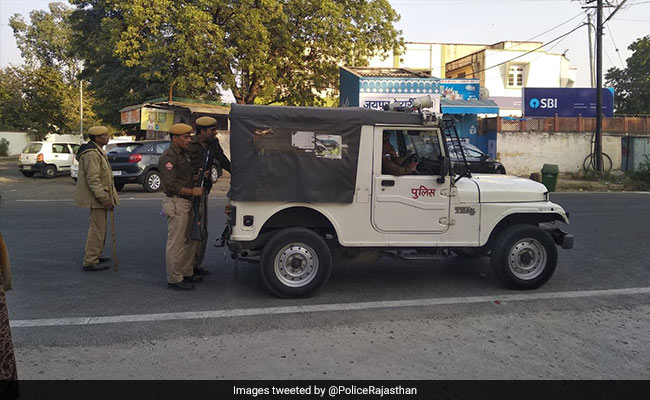
UN says 85 per cent of the population has been displaced in Gaza. (File)
Palestinian Territories:
Israel warned its war against Hamas will continue throughout 2024 as unrelenting strikes killed two dozen people in Gaza and the Palestinian group fired a rocket barrage at the stroke of midnight.
Israeli military spokesman Daniel Hagari said in a New Year’s message that some of the 300,000 army reservists would get a break from the war, in order to prepare for the “prolonged fighting” ahead.
The army “must plan ahead, understanding that we will be required for additional tasks and warfare throughout this year,” Hagari said as the conflict sparked by the October 7 Hamas attacks raged on.
Heavy artillery fire again pounded targets in Hamas-run Gaza, killing at least 24 people, health ministry officials there said, with attacks reported across the length of the territory.
In the besieged Gaza Strip, where the UN says 85 percent of the population has been displaced, 20-year-old Hamdan Abu Arab said he hoped “2024 will be better”.
“We used to go out and enjoy our time on the last day of the year,” he recalled. “But this New Year’s Eve, there are only missiles and the remains of people.”
Hamas marked the start of the year by firing a rocket barrage at Israel in what it called a “response to the massacres of civilians”.
AFP journalists in Tel Aviv witnessed missile defence systems intercept rockets overhead as some revellers ran for cover and others kept up the party with a shrug.
“My heart was pounding,” said one, Gabriel Zemelman, 26, shortly after the rocket fire. “It’s terrifying. You just saw the life we live, it’s crazy.”
The bloodiest ever Gaza war was triggered by Hamas’s October 7 attacks on Israel, which resulted in the deaths of around 1,140 people, most of them civilians, according to an AFP tally based on official figures.
The operatives also took around 250 people hostage that day, more than half of whom remain in Gaza, according to Israeli officials.
Israel has vowed to destroy Hamas and launched a punishing offensive that has reduced vast areas of Gaza to a ruined wasteland and killed at least 21,822 people, mostly women and children, according to the territory’s health ministry.
The Israeli army says 172 of its soldiers have been killed inside Gaza in the battle against the Islamist group which Israel, the United States and European Union have designated a “terrorist” organisation.
‘We live like animals’
Prime Minister Benjamin Netanyahu warned on Saturday that the fighting would last “many months until Hamas is eliminated and the hostages are returned”.
Hagari said “we are also currently adapting the planning of the force deployment in Gaza and the reserve system. Some of the reservists will return to their families and employment this week.
“This will significantly ease the burden on the economy and allow them to gather strength for the upcoming activities in the next year, as the fighting will continue and they will still be required.”
Since Israel imposed a siege at the outset of the war, Gazans have been facing dire shortages of food, water, fuel and medicine.
UN chief Antonio Guterres has condemned the “epic human suffering” and “collective punishment” of Palestinian civilians, while the WHO has warned of the risk of hunger and infectious disease.
“We are exhausted… We were displaced five times during this war,” said 29-year-old Bassam Hana.
“We hope things improve in 2024 and that we live just like any other human being. Currently, we live like animals.”
At least 48 Palestinians were killed in strikes on Gaza City over the weekend, the territory’s health ministry said, with many still buried under the rubble.
“After the explosion we arrived at the scene of the strike and saw martyrs everywhere,” said one resident after a building was hit. “Children are still missing, we can’t find them.”
Hagari, in a briefing on Sunday, said several operatives “were killed and subdued during the battles in Khan Yunis”, the main southern city, earlier in the day.
“We are continuing to handle the underground tunnels and to strike the rocket launching array, in order to reduce rocket fire into the State of Israel,” he said, adding that “dozens of aircrafts are in the skies of Gaza at any given moment”.
Regional fears
International mediators have continued efforts toward a new pause in fighting.
A Hamas delegation from Qatar visited Cairo on Friday to discuss an Egyptian three-phase plan proposing renewable ceasefires, a staggered release of hostages for Palestinian prisoners, and ultimately an end to the war, sources close to Hamas said.
Their allies Islamic Jihad said on Saturday that Palestinian factions were evaluating the proposal and would give a response “within days”.
The war in Gaza has raised fears of a broader regional conflict, with hostilities flaring with mostly Iran-backed groups in nearby countries who say they are acting in support of Hamas.
The Israeli army announced Sunday night having intercepted two “hostile aircraft” launched from Syria towards northern Israel.
Earlier it had reported launches toward Israeli territory from Lebanon, where it has fought the Hezbollah group.
“Throughout the day, IDF (military) tanks and helicopters targeted three terrorist squads operating in Lebanon,” the army said in a statement.
And in the Red Sea, the US military said Sunday that Navy helicopters had fired at Iran-backed Huthi rebel boats off Yemen that were attacking a cargo ship, with Yemeni sources reporting 10 rebels killed.
(Except for the headline, this story has not been edited by NDTV staff and is published from a syndicated feed.)





















